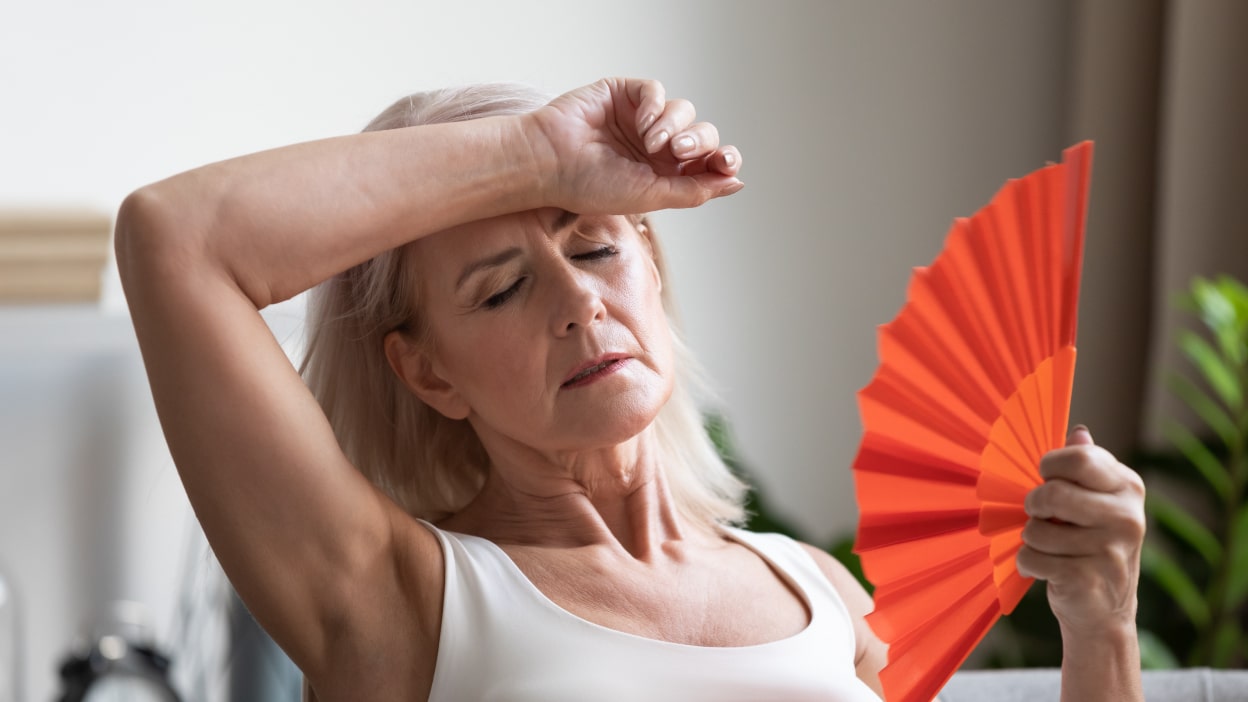Overcoming Menopausal Insomnia - Tips for Sleeping Better
Overcoming Menopausal Insomnia - Tips for Sleeping Better
Difficulty falling asleep and staying asleep are two of the most important concerns I hear from women in midlife. Not only do I hear it, I truly empathize with these concerns, because I have experienced them myself.You may first notice difficulty falling asleep while transitioning through perimenopause. Difficulty staying asleep is one of the hallmark complaints during and after menopause.
No one needs to tell you why a good night's sleep is so important to your health and well-being. You know, that without a restful sleep, your energy level and your moods will suffer. You will be cranky and easily distracted. It may take every ounce of your patience not to snap someone's head off. You don't want to behave this way. This is not you. But after days, weeks and even months of poor quality sleep, your relationships and your health may start to suffer.
Why Can't I Get a Good Night's Sleep?
Three major factors contribute to midlife sleep problems: age, changes in hormone levels and stress.
Age: We have no control over our age, and unfortunately as you approach your mid-to-late 40s or 50s, you may start to experience difficulty sleeping.
Change in Hormone Levels: Fluctuating hormone levels, particularly estrogen and progesterone during the mid-life transition, can disturb sleep patterns. In addition, a third hormone that is important for a restful sleep can start to decline with age. This hormone is produced by the pineal gland and is called Melatonin, also known as "the hormone of darkness."
All three hormones are crucial for providing a good night's sleep, but they have very different functions in a woman's body.
For example, the hormone progesterone works by calming moods and making us sleepy. Estrogen balances body temperature. When estrogen levels drop during midlife, we start to develop hot flashes and night sweats, which cause us to wake up frequently at night. Estrogen levels are at their lowest at two o'clock in the morning, hence the 2am wake up call. Melatonin produced by the pineal gland causes us to feel drowsy when darkness occurs.
Stress: Stress also contributes to sleep problems. Prolonged stress can eventually take its toll on your adrenal glands, reducing their ability to compensate for stress. If your adrenal glands are in good working order, however, they will take over for your ovaries after menopause and continue to produce a lower amount of natural estrogen for the body to use. Stress reducing activities such as yoga, meditation, tai chi, or short walks can give your adrenal glands the boost they need to remain in good working order before, during and after menopause.
Sleepless in Seattle ? Does it Ever End?
How long will these sleepless nights go on? Women all over the country are anxious for the answer to this question. Some women will have difficulty sleeping during the menopause transition but when their hormones level off, they return to their normal sleep patterns. For others, insomnia can last much longer. Every woman is an individual. Let's consider some practical steps you can take to bring back long forgotten "sweet dreams."
Lifestyle Changes - Known in the medical field as "Good Sleep Hygiene"
- Go to bed and get up at the same time every day even on weekends!
- Establish a relaxing ritual to wind down before bed, such as taking a hot bath, or practicing relaxation techniques like meditation or yoga
- Limit caffeine intake, especially after 2pm
- Exercise regularly, on days that you feel like it and days that you don't, but not within three hours of bedtime
- Stop smoking, or at minimum, limit nicotine within two hours of bedtime
- Don't use alcohol as a sleep aid, and limit alcohol within two hours of bedtime
- The time you spend in bed should be limited to sleeping and sex. (Yes! There is sex after menopause.)
- Forego naps if you have trouble sleeping at night
- Keep the bedroom cool, dark and as quiet as possible
In closing, always incorporate healthy lifestyle choices into your daily routine first, to see if your normal sleep patterns return, before trying over-the-counter or prescription sleep aids. If you find that good quality sleep still eludes you, be sure and discuss your individual sleep issues with your doctor. Sleeping soundly at night and feeling rested in the morning are vital components to health, quality of life and longevity. Sweet dreams!
Recommended Products
Absorbency Level
Absorbency Level















